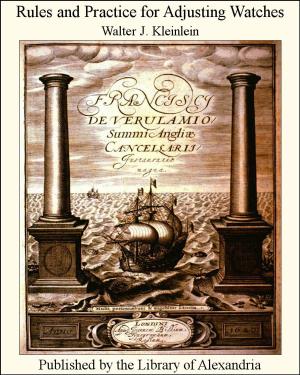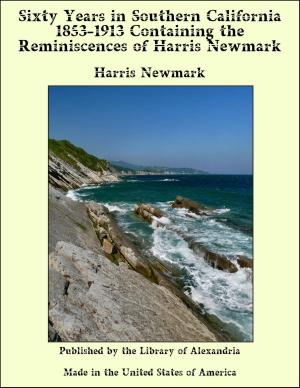| Author: | John Gibson Lockhart | ISBN: | 9781465605511 |
| Publisher: | Library of Alexandria | Publication: | March 8, 2015 |
| Imprint: | Language: | English |
| Author: | John Gibson Lockhart |
| ISBN: | 9781465605511 |
| Publisher: | Library of Alexandria |
| Publication: | March 8, 2015 |
| Imprint: | |
| Language: | English |
Since you are desirous, my friends, that I should relate to you, at length and in order, the things which happened to me during my journey to Rome, notwithstanding the pain which it must cost me to throw myself back into some of the feelings of that time, I cannot refuse to comply with your request. After threescore years spent in this remote province of an empire, happy, for the most part, in the protection of enlightened, just, and benevolent princes, I remember, far more accurately than things which occurred only a few months ago, the minutest particulars of what I saw and heard while I sojourned, young and a stranger, among the luxuries and cruelties of the capital of the world, as yet imperfectly recovered from the effects of the flagitious tyranny of the last of the Flavii. My father, as you have heard, came with his legion into this island, and married a lady of native blood, some years before the first arrival of Agricola. In the wars of that illustrious commander, during the reigns of Vespasian and Titus, he had the fortune to find opportunities of distinguishing himself; but when his general was recalled, by the jealousy of Domitian, he retired from public life, and determined to spend the remainder of his days in peace, on the lands which belonged to him in right of his wife here in Britain. He laid the foundations of the house in which I have now the pleasure of receiving you; and here, in the cultivation of his fields, and in the superintendence of my education, he found sufficient employment for an active, though no longer an ambitious mind. Early in the reign of Trajan he died. Never did either Roman or British dwelling lament a more generous master. I cannot pretend to regret the accident which immediately afterwards separated me from a gentle mother—never to see her more upon the earth. Yet deeply was the happiness of my returning hour stained by that privation. It is the common rule of nature, that our parents should precede us to the grave; and it is also her rule, that our grief for them should not be of such power as to prevent us from entering, after they are gone, into a zealous participation both of the business and the pleasures of life. Yet, in after years, the memory of that buried tenderness rises up ever and anon, and wins rather than warns us to a deliberate contemplation of our own dissolution.
Since you are desirous, my friends, that I should relate to you, at length and in order, the things which happened to me during my journey to Rome, notwithstanding the pain which it must cost me to throw myself back into some of the feelings of that time, I cannot refuse to comply with your request. After threescore years spent in this remote province of an empire, happy, for the most part, in the protection of enlightened, just, and benevolent princes, I remember, far more accurately than things which occurred only a few months ago, the minutest particulars of what I saw and heard while I sojourned, young and a stranger, among the luxuries and cruelties of the capital of the world, as yet imperfectly recovered from the effects of the flagitious tyranny of the last of the Flavii. My father, as you have heard, came with his legion into this island, and married a lady of native blood, some years before the first arrival of Agricola. In the wars of that illustrious commander, during the reigns of Vespasian and Titus, he had the fortune to find opportunities of distinguishing himself; but when his general was recalled, by the jealousy of Domitian, he retired from public life, and determined to spend the remainder of his days in peace, on the lands which belonged to him in right of his wife here in Britain. He laid the foundations of the house in which I have now the pleasure of receiving you; and here, in the cultivation of his fields, and in the superintendence of my education, he found sufficient employment for an active, though no longer an ambitious mind. Early in the reign of Trajan he died. Never did either Roman or British dwelling lament a more generous master. I cannot pretend to regret the accident which immediately afterwards separated me from a gentle mother—never to see her more upon the earth. Yet deeply was the happiness of my returning hour stained by that privation. It is the common rule of nature, that our parents should precede us to the grave; and it is also her rule, that our grief for them should not be of such power as to prevent us from entering, after they are gone, into a zealous participation both of the business and the pleasures of life. Yet, in after years, the memory of that buried tenderness rises up ever and anon, and wins rather than warns us to a deliberate contemplation of our own dissolution.















